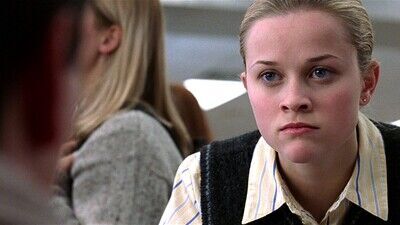The “she” is Tracy Flick, a preternaturally ambitious teenager who dared to run for high school class president and tried really, really hard to win. In the 25 years since “Election,” Tracy Flick (as played by Reese Witherspoon) has become one of the most infamous and oft-referenced characters in modern cinema, and her name has almost become a loaded word, stigmatizing ambitious and over-qualified women ever since.
Filmmaker Alexander Payne (and his writing partner, Jim Taylor) adapted the screenplay from an unpublished-at-the-time novel by Tom Perotta, who drew inspiration for his story from three disparate sources. First, the 1992 Presidential election and how the race was upended by a third-party candidate (Ross Perot). Second, a contemporaneous news story out of Wisconsin, where four school administrators conspired to block a 17-year-old from winning the election for Homecoming Queen because she was pregnant. (Reading the actual news story, you can immediately see how it inspired a movie.)
But Perotta’s third source of inspiration might be the most instructive one for the film’s enduring relevance. He had been teaching at Harvard and Yale, and he noticed the young women in his classes were far different from those he grew up with. Because, unlike his contemporaries, these women were raised by feminist mothers. As Perotta told writer Brian Raftery (in Raftery’s excellent book Best. Movie. Year. Ever.), these women “were going to conquer the world, and I could see they made people uncomfortable.”
So Perotta created Tracy Flick, the ultimate generator of that discomfort, and Jim McCallister, the perfect vessel of mediocrity to receive it. And who better to play the man who feels threatened by an over-achieving high schooler than an actor who came to fame as a high schooler who skips class? (Though, amusingly, Payne claimed he had never seen “Ferris Bueller’s Day Off” before casting Matthew Broderick as Jim McCallister.)
But it’s Reese Witherspoon’s performance as Flick that dominates the film, as well as the discourse around it. How should we feel about Tracy Flick? Is she a sympathetic character? Did she deserve to win the election?

